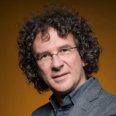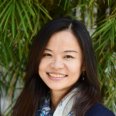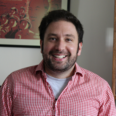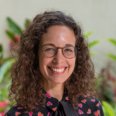It's stated that Dutch citizens want to have a say in government policy. And in a broad sense, the relationship between government institutions and citizens is becoming more equal. In the upcoming online interactive session, together with experienced panelists from the Netherlands and Singapore, we will investigate how citizen science and policy-making could come together during the innovative process in academic research. Whether you're a student, researcher or citizen of any country: Join the discussion panel on the 5th of July at 10:00 AM (CET), jointly organised by NTU Institute of Science and Technology for Humanity (NISTH) and DesignLab University of Twente.
integrating Citizen Science in policy-making
Governments base many of their decisions on scientific advice and scientific research. This does not always result in an adequate representation of the concerns of citizens. To engage citizens more explicitly in policy-making, therefore, citizen science could play an important role. This ‘bottom up’ type of research, in which citizens are actively involved in scientific research, makes sure that citizens are not only represented in the politicians they elect, but also in the research on which politicians base their decisions.
How can individuals effectively introduce their (public) perspective? How do we make sure that everyone has access to lobby for change? What are the conditions and enablers? How does citizen science might work across different cultural and governmental approaches in Singapore and the Netherlands?
The panelists, moderators and you
Panelist 1: Prof.dr.ir. Peter-Paul Verbeek
Panelist 2: Dr. Sabine Wildevuur
Panelist 3: Dr. Natalie Pang
Panelist 4: Hallam Stevens
Moderator: Prof.dr. Vanessa Evers
Each of our four panelists will bring an opening statement: Prof.dr.ir. Peter-Paul Verbeek and Dr. Sabine Wildevuur from the Netherlands perspective, Dr. Pang and Dr. Stevens will share their views from the Singapore standpoint. Let us introduce them to you:
Prof.dr.ir. Peter-Paul Verbeek - University of Twente Peter-Paul Verbeek is Distinguished Professor of Philosophy of Technology at the Department of Philosophy at the University of Twente. He is chair of the Philosophy of Human-Technology Relations research group and scientific co-director of DesignLab University of Twente. He is also honorary professor of Techno-Anthropology at Aalborg University, Denmark.
Besides his academic work, Verbeek is chairperson of the UNESCO World Commission for the Ethics of Science and Technology (COMEST) and chairperson of the Commission for the Freedom of Academic Pursuit of the Royal Netherlands Academy of Arts and Sciences KNAW. He is also vice chair of the board of the Rathenau Institute, member of the Domain Board for Social Sciences and Humanities of the Dutch Research Council NWO, member of the Supervisory Board of TNO (Dutch Organization for applied scientific research), and member of the Dutch National Commission for UNESCO. Moreover, he is member of the Sector Plan Committee Social Sciences and Humanities of the Dutch Ministry of Education, Culture, and Science, and member of the program council for Responsible Innovation of NWO.
His research focuses on the philosophy of human-technology relations, and aims to contribute to philosophical theory, ethical reflection, and practices of design and innovation. His current research projects include: Ethics of Socially Disruptive Technologies; Pride and Prejudice (subproject on the technological understanding of health and well-being); TopFit (subproject on the ethics and epistemology of citizen science); Designing for Controversies in Responsible Smart Cities; BRIdging Data in the built Environment (BRIDE).
Dr. Sabine Wildevuur - University of Twente Sabine E. Wildevuur is director at DesignLab, an ecosystem at University of Twente to experiment, pioneer and innovate to deal with the demands of a fast-changing society. Its goal is to translate societal challenges into research questions and practical outcomes, envisioning and exploring the interactions between society and technology and actively engaging and involving all societal partners in the process. The main focus areas of DesignLab are: Responsible Design and Citizen Science, which are approached in a transdisciplinary manner. The daily operations is student-driven by the DreamTeam.
Wildevuur has a degree in Medicine and Communication Science from the University of Amsterdam, the Netherlands. Since the emergence of the Internet, the overlap between Information and Communication Technology and healthcare has become Wildevuur’s focus of attention. She worked for several years for the Royal Dutch Medical Association (KNMG). In 2000, Wildevuur founded her own company, Like Wildfire, which focused on Science & New Media and worked with organizations such as Doctors without Borders, Dutch Journal of Medicine, MedicInfo, and the Royal Netherlands Academy of Arts and Sciences (KNAW).
In 2007, Sabine Wildevuur was approached to set up the CARE lab at Waag, Institute for Science and Technology in Amsterdam. With the CARE team, she has been setting up and leading ‘innovative’ transdisciplinary projects within the domain of health and care and technology, together with users. Several projects addressed the issue of an ageing society, which led to the co-written book Connect: Design for an Empathic Society (BIS Publishing, 2013).
One of her aims is to disseminate knowledge on transdisciplinary research and the added value of design thinking to tackle societal challenges. Since she strongly believes in the dissemination of such knowledge, she has curated several exhibitions on the role of design in health: Designing Health (2013), Designing a Healthy Future (Dutch Design Week, 2017), and Chronic Health: If not us then who (Dutch Design Week, 2018). She is one of the founders of the Embassy of Health (Dutch Design Foundation).
At VU University Amsterdam she conducted research on 'Designing information and communication technology to enable person-centred care in chronic disease management'.
Dr. Natalie Pang - National University of Singapore Natalie Pang is a researcher and educator in digital citizenship and well-being, as well as digital humanities and data cultures in smart cities. She is also affiliated to the UNESCO Inclusive Policy Lab that enables knowledge co-creation and translation into inclusive policies.
She has led external research grants worth over a million dollars in total. She incorporates mixed methods in her research, including digital methods as well as survey methodologies.
She has authored and co-authored over 40 journal articles and over 50 conference papers, book chapters, commentaries and encyclopedia entries. She has also worked on translation research in the form of policy papers and presentations for public agencies in Singapore as well as international tech firms and forums, including Mozilla Foundation and the Internet Governance Forum.
As an Executive Committee Member at the Singapore Heritage Society and Board Member of the Southeast Asian Cultural Heritage Alliance (SEACHA), she has an abiding interest in digital heritage and the role of civil society in shaping the urban environments of Asian cities.
Dr. Hallam Stevens - NTU Singapore Hallam Stevens is an Associate Professor in the History Programme and in the School of Biological Sciences at Nanyang Technological University in Singapore. He is also the Associate Director (Academic) of NISTH.
He writes about genomics, the life sciences, big data, and the history of computers. At NTU, he teaches classes on these topics as well as on food history and history of science and technology more generally. His first book is an historical and ethnographic account of the changes wrought to biological practice and biological knowledge by the introduction of the computer (Life out of Sequence: A Data-Driven History of Bioinformatics (2013)). He also wrote Biotechnology and Society: An Introduction (2016) and the co-editor of Postgenomics: Perspectives on Life after the Genome (2015). His current research is focused on the development of genomics in the People’s Republic of China.
His research also focuses on the intersection between information technology and biotechnology. Especially in highly computerized fields such as genomics, the computer has changed how biologists work, how biologists collaborate, and how biologists make knowledge.
Throughout the session you will have the opportuntity to answer the poll question, start a discussion with the panelists and ask your burning questions during the Q&A. The session will be hosted and moderated by Prof.dr. Vanessa Evers:
Prof.dr. Vanessa Evers - NTU Singapore & University of Twente Vanessa Evers is a Professor of Socially Intelligent Systems at the School of Computer Science and Engineering and she is the Founding Director of NTU Institute of Science and Technology for Humanity (NISTH).
She established to study the impact of technology on human society, and to bring industry, government and academia together to find ways to enhance the use of technology for the betterment of humanity. In addition, she is a chair and Professor of Human Media Interaction, University of Twente, the Netherlands. She is also the Scientific Director and founder of DesignLab University of Twente.
Professor Evers studied Information Systems at the University of Amsterdam, Business Information Science at UNSW, Sydney and has a PhD from the Open University UK. Previously, she worked for the Boston Consulting Group and was a visiting Scholar at Stanford University.
Evers' work exists at the intersection of Computer Science, Psychology, Design, and Electrical Engineering and focusses on human interaction with artificially intelligent systems and cultural aspects of Human Computer Interaction. It covers design of Artificially Intelligent systems that are able to interpret human social behaviours and respond to people in a socially acceptable way as well as the evaluation of the impact of such technology on people and society. She is a frequent public speaker in the media and at international fora such as the World Economic Forum at Davos.
Join the discussion
Sign up for the online discussion panel by filling out the form. You will receive an email with a Zoom link to access the online session, which will take place on the 5th of July at 10:00 AM (CET). We hope to see you there! If you have any questions, please let us know by sending DesignLab an email.







